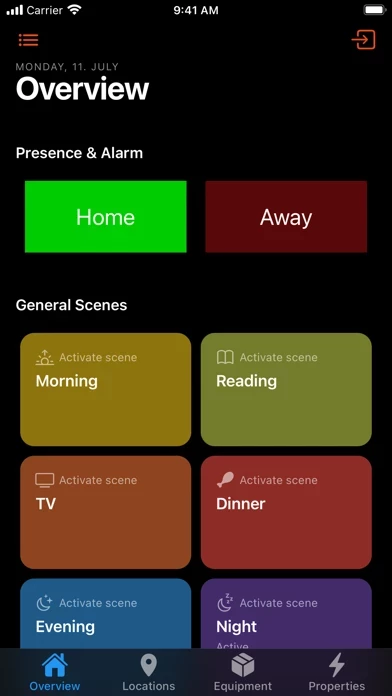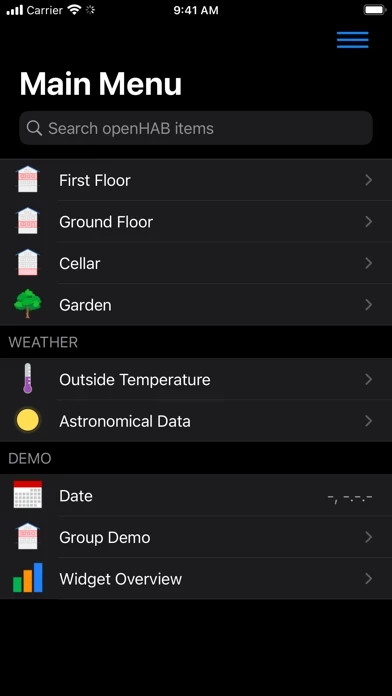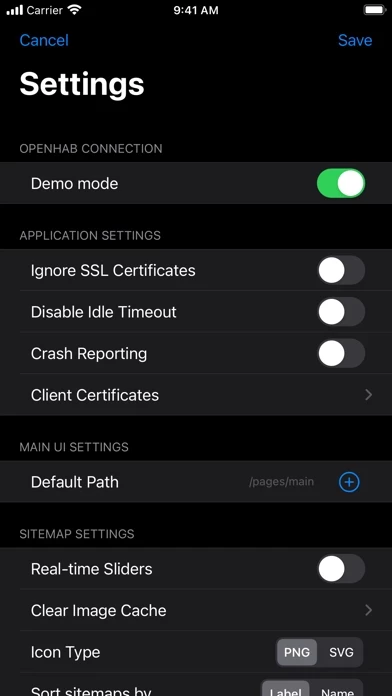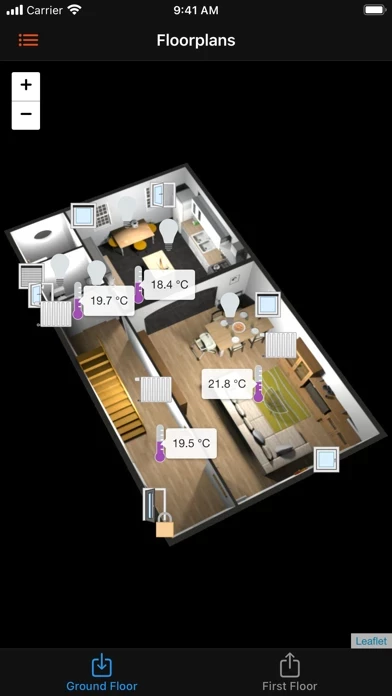Aiphone, Amazon Dash Button, Amazon Echo Control, AmpliFi, AndroidTV, Anker, Apple HomeKit, Arlo, August, Belkin, Blink, Bosch Smart Home, Bose SoundTouch, Brinks, Chamberlain, Chromecast, Cree, D-Link, Daikin, Denon / Marantz, Dynaudio, Ecobee, Electrolux, Eero, Fibaro, Foscam, Freebox, Gardena, Google Home, Hisense, Honeywell, Honeywell Home, Hue, iRobot, JBL, Jablotron Alarm, Kaleidescape, Kenwood, KNX, Kodi, Kuka, Kwikset, LIFX, LG, Linksys, Logitech, Lutron, Miele Cloud, Miele@home, Moen, Nanoleaf, Neato, Netatmo, Nest, Nortek, Nuki, Osram, Philips Hue, Pioneer, Plex, Powermax, Rako, Ring, Ring Alarm, Roku, Samsung Smartthings, Sennheiser, Sensibo, Shelly, Siemens, SimpliSafe, Smarthome, Smartmeter, Smartthings, Sonos, Sony, Spotify, Squeezebox, Tado, Technics, Tesla, TP-Link Smart Home, TRÅDFRI, Unifi, Velux, Vera, Verisure, Vizio, Volumio, Wemo, Whirlpool, Wink, Xiaomi, Yamaha Musiccast, Yamaha Receiver, Yeelight, Zigbee, Z-Wave and 400 more popular technologies….
Its advanced rules based architecture allows complete automation using several popular scripting languages (Java Script, Ruby, Python, Java, RDSL, and more ) as well as visual rule designers using either drag and drop interfaces or simple “If / Then” forms.
The open Home Automation Bus (openHAB) project aims at providing a universal integration platform for connecting home automation technologies into a single intelligent system.
The official companion application for openHAB - an open source home automation system.
The new openHAB UI allows users to easily build beautiful interfaces customized to their needs.
Make openHAB the central integration and control point of your Smart Home.
With more than 3000 things that openHAB can connect to, there’s virtually nothing that can’t be integrated.
openHAB is designed to be absolutely vendor-neutral as well as hardware/protocol-agnostic.
















